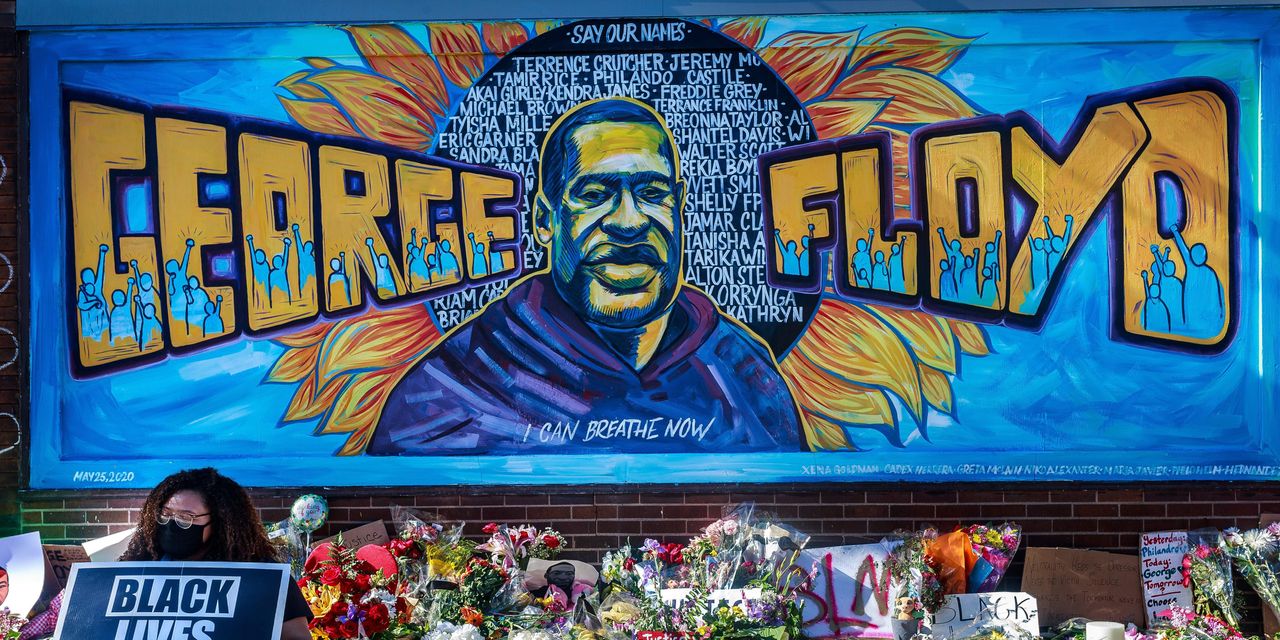Three years after George Floyd was murdered by a Minneapolis police officer — a May 2020 killing captured in a shocking viral cellphone video that spurred racial-justice uprisings nationwide — there have been “a lot of pledges” for reform, but “not much substance,” said Gary Cunningham, the outgoing president and CEO of Prosperity Now, a nonprofit that advocates for racial and ethnic economic justice.
“There have been some local changes, and some cities have done a lot to change their policing practices to actually ensure that they’re not treating one group differently than others,” Cunningham told MarketWatch in a recent conversation for Barron’s Live. “But you haven’t seen a whole lot on the national scale at this point. And we actually do need a national solution, and not just a local solution, to the issue of police violence.”
And when it comes to corporate financial pledges toward economic equality, “I would say that the impact of that has been marginal at best,” Cunningham said.
The aftermath of Floyd’s murder was marked by companies throwing serious money at racial-equity initiatives: Nearly 1,400 Fortune 1000 companies collectively pledged about $340 billion between May 2020 and October 2022, McKinsey & Company said this past February. Local, state and federal legislators also voiced support for police reform, racial economic equality, and more.
But whether those efforts have made a meaningful difference in the lives of Black Americans is another matter. A Washington Post-Ipsos poll of more than 1,200 Black Americans released Thursday showed almost half believed President Joe Biden’s policies had made no difference, while about a third had found them helpful. (Biden, marking the anniversary of Floyd’s murder on Thursday, called on Congress to pass “meaningful police reform.”)
Additionally, Cunningham noted that organizations that primarily serve people of color or are led by executives of color continue to experience greater financial challenges in general, despite promises for more resources. The Nonprofit Finance Fund’s 2022 State of the Nonprofit Sector Survey found that although nonprofits led by people of color experienced a greater increase in demand for their services in the first two years of the pandemic, they were less likely to receive corporate donations in 2021 compared to their white-led peers.
“Prosperity Now hasn’t seen a huge influx of additional resources in terms of addressing these issues,” Cunningham said.
As far as government initiatives go, some of the most successful measures to advance economic equality in the past three years weren’t directly related to promises made after Floyd’s murder. For example, the temporary expansion of the child tax credit in 2021, part of the American Rescue Plan, slashed child poverty and had demonstrably large mental-health benefits for Black and Hispanic adults. But it was nonetheless allowed to lapse when Biden’s Build Back Agenda fell apart, after Democratic Sen. Joe Manchin of West Virginia withdrew his support in December 2021.
“When they had a chance to reauthorize that child-care tax credit, they didn’t,” Cunningham said of Congress. “So we’re spending more on war and the military industrial complex than we are on our people in America, and that’s shameful.”
“We need to change that around, because we won’t as a country be able to thrive, we won’t be able to compete internationally, we won’t be able to maintain our standard of living in this country, unless we invest in our people,” he added. “And that really begins in opportunities for children — Black and brown children throughout this country — to participate fully in the American dream.”
Read the full article here













